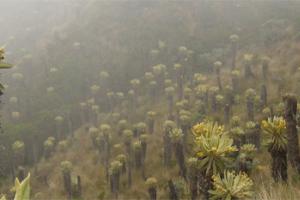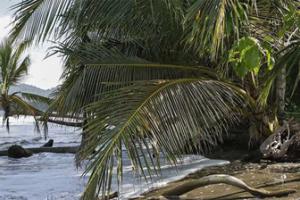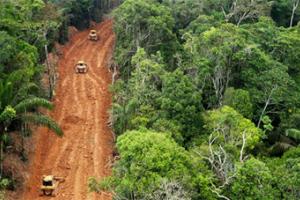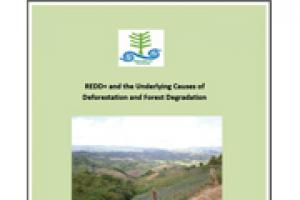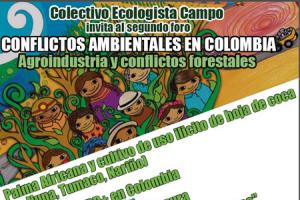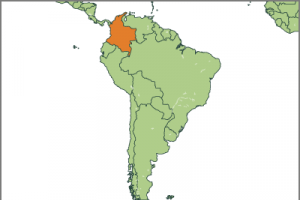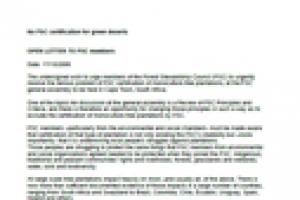Meekly the water flows from lichens and stones
like a flood of feelings from
the soul of the earth...
(Efraín Gutiérrez Zambrano)
Colombia
Bulletin articles
4 September 2014
Bulletin articles
4 July 2014
"They consider us the periphery of the periphery"
Other information
13 November 2013
The Global Forest Coalition launched a new report on 'REDD+ and the Underlying Causes of Deforestation and forest Degradation' based on five case studies in Brazil, Colombia, India, Uganda and Tanzania elaborated by national organizations in those countries themselves. It was launched at the 19th Conference of the Parties of the Climate Convention in Warsaw.
Other information
11 September 2013
Only available in Spanish -
En el marco de la conmemoración del 21 de septiembre, Día Internacional contra los Monocultivos de Árboles, el Colectivo Ecologista Campo está organizando su II Foro de Conflictos Ambientales en Colombia, con la temática de Agroindustria y Conflictos Forestales. Tendrá lugar en día miércoles 18 de septiembre, de 3 a 6 pm en la Universidad del Rosario, Salón 601, Torre2. Entrada Libre.
Other information
30 March 2013
On 14 March 2013, the Colombian organization Movimiento Ríos Vivos marked the International Day of Action Against Dams and For Rivers, Water and Life by calling on communities to mobilize in different ways and take part in the activities scheduled for the day, in solidarity with the peaceful march being held by people displaced by the Hidroituango mega dam project.
Other information
30 October 2011
For more than 20 years, Colombia has seen the ongoing expansion of monoculture tree plantations, to the benefit of transnational companies who have enjoyed and continue to enjoy the support of government policies. To analyze this continued expansion, whose consequences include land grabbing, rights violations and the displacement of communities, CENSAT-Friends of the Earth Colombia organized a forum entitled “Tree Plantations in Colombia: A Critical Look”, held in Bogotá on September 21, the International Day Against Monoculture Tree Plantations.
Other information
15 June 2011
Only available in Spanish -
Por Guadalupe Rodríguez, Salva la Selva
El precio del oro está en alza por décimo año consecutivo, dado que inversores, operadores y bancos centrales lo han buscado como refugio seguro. Se espera que se mantenga esta tendencia. La posesión de oro da seguridad frente a la situación inestable de la economía global, por lo que todos desean el codiciado metal. Y esto tiene consecuencias.
Download full document here
Bulletin articles
5 June 2011
The price of gold is rising for the tenth consecutive year. As a result, more and more investors, financial market operators and central banks are turning to gold as a safe haven in the face of global economic instability. This has troubling consequences, because gold mining is one of the most destructive and polluting of all mining activities.
Bulletin articles
30 December 2009
Colombia: oil-palm plantations, violation of human rights and Afro-descendent communities’ quest for true dignity
When you talk about the violation of human rights, you must talk about Colombia. When you talk about the huge expansion of oil-palm plantations, you must talk about Colombia. Both issues go hand in hand in that country
Bulletin articles
27 February 2009
The Chocó is a biogeographical region that forms part of the neotropics (meaning that it contains the largest area of tropical rainforest). Its high rainfall levels, tropical temperatures and isolation have helped make it one of the world’s most biologically diverse regions as well. In Colombia it encompasses the Pacific Coast region and, among others, the department of Chocó, located between the jungles of Darién and the basins of the Atrato and San Juan Rivers.
